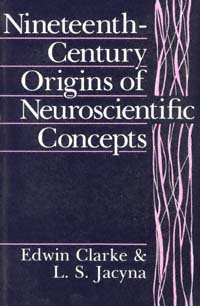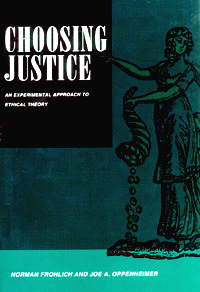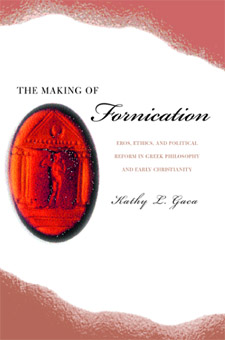formerly eScholarship Editions


|
|
|
|
Your search for
'Ethics' in subject
found 24 book(s). | Modify Search | Displaying 21 - 24 of 24 book(s) | |
| 21. |  | Title: Nineteenth-century origins of neuroscientific concepts Author: Clarke, Edwin Published: University of California Press, 1992 Subjects: Science | History and Philosophy of Science | Medicine | Ethics Publisher's Description: This book traces the seminal ideas that emerged in the first half of the nineteenth century, when the fundamental concepts of modern neurophysiology and anatomy were formulated in a period of unprecedented scientific discovery. Similar Items |
| 22. |  | Title: Rethinking evil: contemporary perspectives Author: Lara, María Pía Published: University of California Press, 2001 Subjects: Philosophy | Ethics | Social and Political Thought | Intellectual History | Social Theory | Social Problems Publisher's Description: This innovative volume will be welcomed by moral and political philosophers, social scientists, and anyone who reflects seriously on the twentieth century's heavy burden of war, genocide, ethnic cleansing, and other evidence of people's desire to harm one another. María Pía Lara brings together a provocative set of essays that reexamine evil in the context of a "postmetaphysical" world, a world that no longer equates natural and human evil and no longer believes in an omnipotent God. The question of how and why God permits evil events to occur is replaced by the question of how and why humans perform radically evil acts. [brief] Similar Items |
| 23. |  | Title: Choosing justice: an experimental approach to ethical theory Author: Frohlich, Norman Published: University of California Press, 1992 Subjects: Politics | Economics and Business | Philosophy | Political Theory | Social Theory | Ethics Similar Items |
| 24. |  | Title: The making of fornication: eros, ethics, and political reform in Greek philosophy and early Christianity Author: Gaca, Kathy L Published: University of California Press, 2003 Subjects: Classics | Classical Philosophy | Classical Religions | Classical Politics | Christianity | Ethics | Social and Political Thought | Ancient History | Intellectual History Publisher's Description: This provocative work provides a radical reassessment of the emergence and nature of Christian sexual morality, the dominant moral paradigm in Western society since late antiquity. While many scholars, including Michel Foucault, have found the basis of early Christian sexual restrictions in Greek ethics and political philosophy, Kathy L. Gaca demonstrates on compelling new grounds that it is misguided to regard Greek ethics and political theory - with their proposed reforms of eroticism, the family, and civic order - as the foundation of Christian sexual austerity. Rather, in this thoroughly informed and wide-ranging study, Gaca shows that early Christian goals to eradicate fornication were derived from the sexual rules and poetic norms of the Septuagint, or Greek Bible, and that early Christian writers adapted these rules and norms in ways that reveal fascinating insights into the distinctive and largely non-philosophical character of Christian sexual morality. Writing with an authoritative command of both Greek philosophy and early Christian writings, Gaca investigates Plato, the Stoics, the Pythagoreans, Philo of Alexandria, the apostle Paul, and the patristic Christians Clement of Alexandria, Tatian, and Epiphanes, freshly elucidating their ideas on sexual reform with precision, depth, and originality. Early Christian writers, she demonstrates, transformed all that they borrowed from Greek ethics and political philosophy to launch innovative programs against fornication that were inimical to Greek cultural mores, popular and philosophical alike. The Septuagint's mandate to worship the Lord alone among all gods led to a Christian program to revolutionize Gentile sexual practices, only for early Christians to find this virtually impossible to carry out without going to extremes of sexual renunciation. Knowledgeable and wide-ranging, this work of intellectual history and ethics cogently demonstrates why early Christian sexual restrictions took such repressive ascetic forms, and casts sobering light on what Christian sexual morality has meant for religious pluralism in Western culture, especially among women as its bearers. [brief] Similar Items |